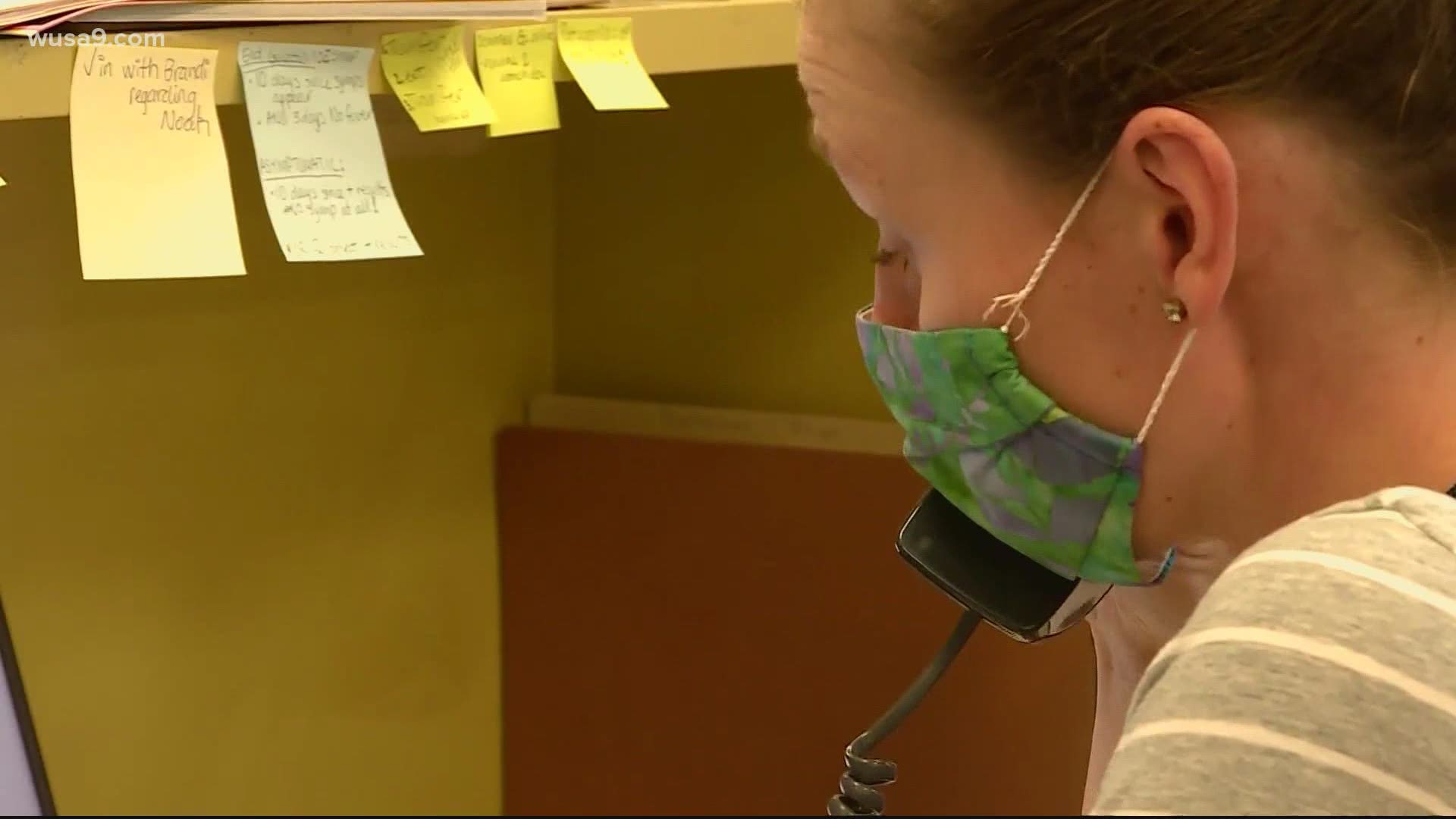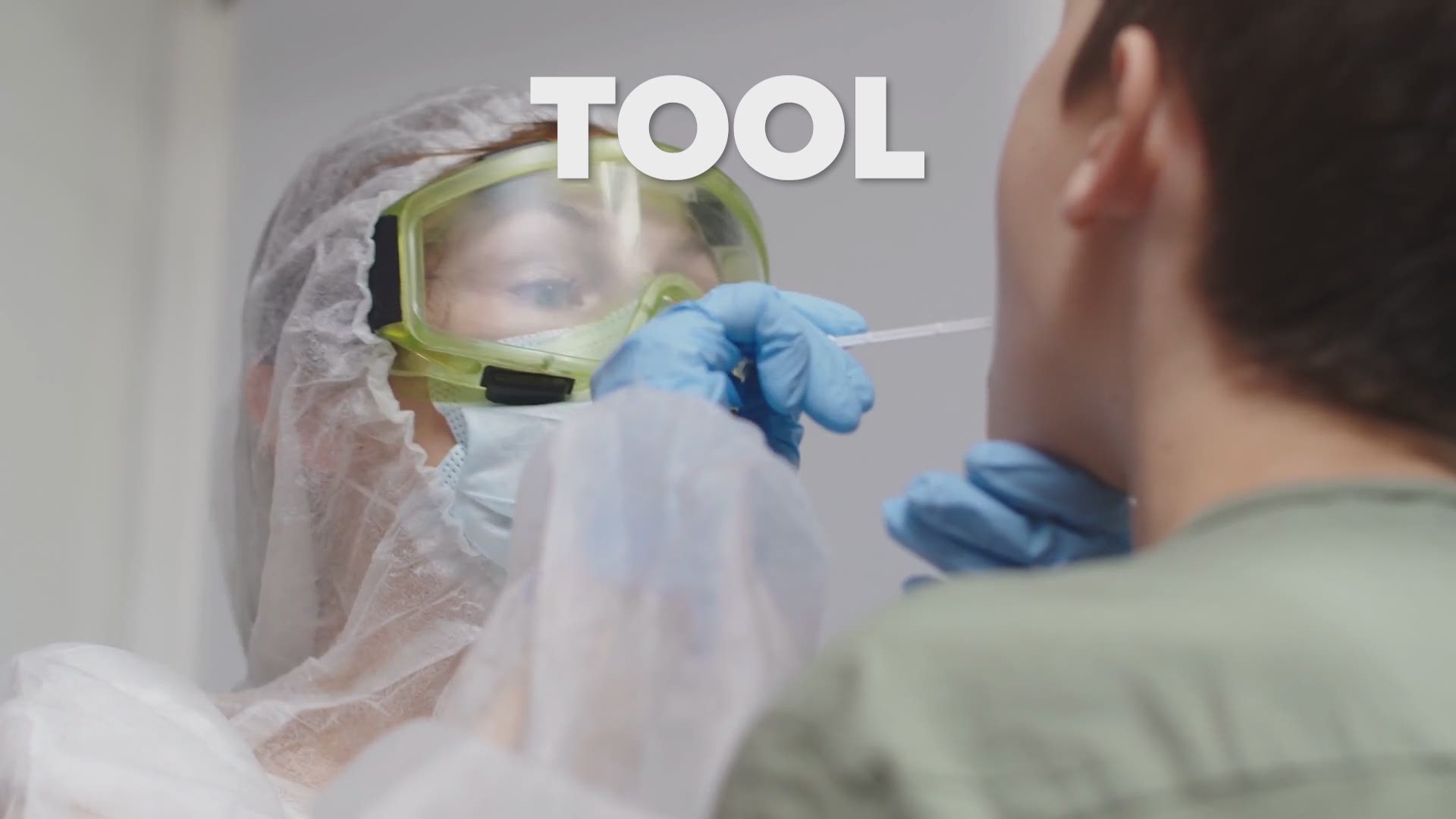WASHINGTON, D.C., USA — Months after contact tracers first began tracking coronavirus cases in the DMV, those on the medical fronts lines spoke to WUSA about the successes and challenges they face fighting against the spread of the disease.
As a retired Air Force family physician and now a member of the Medical Reserve Corps, Michael Spatz has been working as a contact tracer in Alexandria. He and his team, as well as other contact tracers across the country, are tasked with getting in touch with people who test positive for coronavirus and contacting anyone they may have exposed.
"We’re all about population health and saving the spread of the disease to the community," he said. "Our job is to call that person and get their trust in having a positive encounter. We interview them about their past history, their employment history, whether they have a known exposure. I ask how sick they are, whether they fully recovered, and when they think they may have been exposed.”
Over time, Spatz and his team have helped identify many cases and kept others safe.
"What’s going well is more people expect the calls and more people are aware of the virus than they were a few months ago," he said.
However, the process of contact tracing has not been free of challenges.
According to Spatz, getting the right contact information and then obtaining relevant facts about possible exposures can bring issues.
"Some people are reluctant to share information, especially about others that they may have exposed," he said. "Others are reluctant because they’re concerned that if they share information, the person that gets identified is going to have to skip work. Many of these people fee like they have to go to work.”
While Spatz said some tracing cases can be challenging, he added that callers often become more comfortable after speaking with him.
"You want to be sympathetic to their situation, but you’ve got to stress the importance of getting this information from them," he said. "We don’t have any legal authority to make them tell us where they were or who they lived with. It’s all about building that relationship."
In Maryland, health officials noted the success of contact tracing by pointing to recent data that showed about 90% of positive cases in the state had been contacted within 24 hours after getting their results.
Dr. Katherine Feldman, the Chief Public Health Scientist at the Maryland Department of Health, said that while contact tracing was helping in the fight against coronavirus, testing would continue to be a key element in stopping its spread.
"Time is of the essence," Feldman said. "As soon as we learn of a positive test result, we want to reach that individual and advise them to stay at home. If there’s a long delay in getting the test result, that’s more days they might have been out in the community.”
With the fight against the pandemic still happening, those on the front lines hoped people infected with coronavirus would continue to share information and help.
"Contact tracing is absolutely critical," Feldman said. "It helps identify anyone that the infected individuals may have exposed so that we can then prevent them from further spreading disease.”
Dr. Feldman added that Maryland residents should look for any calls coming from MD-COVID or 240-466-4488, which come from the state contact tracing call center.


